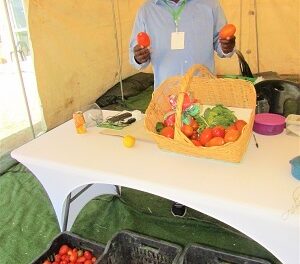Namib Mills last week announced an increase on the prices of all their products, which include bread (by 5%), rice (3%), mahangu (3%), pasta polana (2%), pasta king (4%), pasta la vita (3%), wheat flour (8%), and complete mix (8%).
The price increases were effective from 12 April 2021.
The company says the price increases were caused by “the imposition of a wheat export tax by Russia, the world’s largest wheat exporter, which has disrupted global wheat markets and forced wheat prices up by more than 20% in the past year. This has led to an increase in the landed cost of raw wheat and all wheat-based products.”
Another reason for the price increase is that “the global Polyethylene industry is facing supply and shipping constraints which has a significant impact on packing material cost. The cost of these raw materials has increased more than 30% since last year.”
The third reason for the increase is that “the cost of brent crude oil increased, resulting in fuel price increases.”
However when responding to questions from Omutumwa, Namib Mills’ senior brand manager Marne Bouwer said the price increases on their products will be a good thing any way since it will lead to more local production.
Omutumwa: In a media release notifying the public about price increases on several Namib Mills products, I noticed that the factors causing the increases are all foreign, namely wheat export tax by Russia, global Polyethylene supply constraints, and cost of brent crude oil.
Can you thus explain why the overly reliance on foreign factors 30 years since Namibia gained independence?
Bouwer: Namibia does not have an over reliance; Namibia is part of the global village. If there are shortages or surpluses of certain products, we all feel the effect, whether you live in Hong Kong, Egypt or Ondangwa.
We forget that high prices stimulate production, this means that local production is becoming more competitive, which should mean more local production.
Omutumwa: Mahangu products are said to have increased by 3%. Can you explain why a local product such as mahangu will have to increase in price when factors attributed are all foreign-related?
Bouwer: The international factors on wheat relates to wheat. Mahangu increases relates to the cost of raw Mahangu, diesel and distribution increases, as well as operational expenses like electricity.
Omutumwa: Will the price increases not have seriously negative effects to the consumers during this period of depressed economic environment? And what innovative ways have been explored in attempting to mitigate the said price increases?
Bouwer: Responsible pricing is at the core of food manufacturers. We attempted to delay the increases for as long as possible, but given the factors as mentioned, the industry has no other option [than] to pass through these increases.
Industries attempt to remain sustainable and ensure that the industry can continue, this means that industries operate in certain cost and price models; if the costs increase, there is no other option than to increase the price.
In the photo: Some of Namib Mills products. (Photo courtesy of economist.com)







